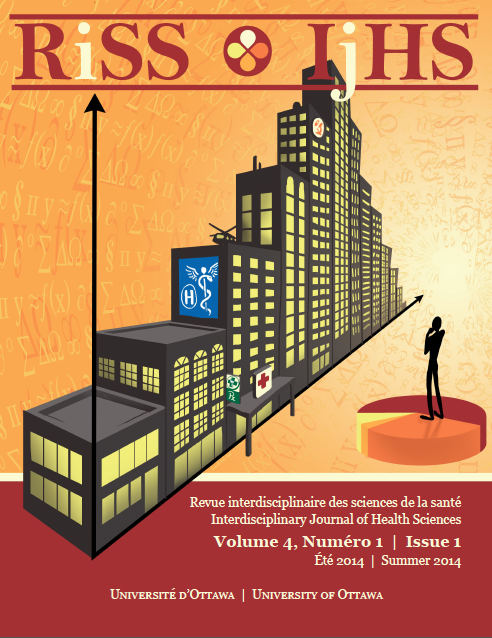Reducing the Global Burden of Depression
DOI:
https://doi.org/10.18192/riss-ijhs.v4i1.1221Keywords:
Depression treatment, antidepressants, cognitive behavioral therapy, counseling, depression preventionAbstract
Depression is expected to be one of the leading causes of morbidity by 2020. Nonetheless, the current methods of treatment for depression may not be effective in reducing the global burden of this disease. Currently, pharmacotherapy represents the first line treatment for depressive disorders; however, many adverse effects of anti-depressants are often overlooked and their interference with body chemistry may not be ideal for long-term treatment.
In order to reduce the burden of disease of depression, methods of treatment such as counseling and therapy should be considered as alternatives to pharmacotherapy. Most importantly, these treatments reduce the occurrence of depression relapse, making them more effective in the long-term. In addition to alternative methods of treatment, depression prevention strategies should be prioritized. Not only is depression prevention the best solution therapeutically, but it is also the most cost-effective in reducing global morbidity. In order to implement these strategies, however, more evidence-based research on the prevention of depressive disorders is required.
References
Chilvers, C., Dewey, M., Fielding, K., Gretton, V., Miller, P., Palmer, B., … & Harrison, G. (2001). Antidepressant drugs and generic counselling for treatment of major depression in primary care: Randomised trial with patient preference arms. British Medical Journal, 322(7289), 772-776. doi: 10.1136/bmj.322.7289.772
Cuijpers, P., Beekman, A. T., & Reynolds, C. F., III. (2012). Preventing depression: A global priority. Journal of the American Medical Association, 307(10), 1033-1034. doi: 10.1001/jama.2012.271
DeRubeis, R. J., Siegle, G. J., & Hollon, S. D. (2008). Cognitive therapy vs. medications for depression: Treatment outcomes and neural mechanisms. Nature Reviews Neuroscience., 9(10), 788-796. doi: 10.1038/nrn2345
Khawam, E. A., Laurencic, G., & Malone, D. A., Jr. (2006). Side effects of antidepressants: An overview. Cleveland Clinic Journal of Medicine, 73(4), 351-353, 356-361.
Mayo Clinic. (2014). Depression (major depressive disorder). Retrieved May 9, 2014, from http://www.mayoclinic.org/diseasesconditions/depression/basics/prevention/con-20032977
Padala, P. R., Padala, K. P., Monga, V., Ramirez, D. A., & Sullivan, D. H. (2012). Reversal of SSRI-associated apathy syndrome by discontinuation of therapy. Annals of Pharmacotherapy, 46(3), e8. doi: 10.1345/aph.1Q656
Reddy, M. (2010). Depression: The disorder and the burden. Indian Journal of Psychological Medicine, 32(1), 1-2. doi: 10.4103/0253-7176.70510
Turner, E. H., Matthews, A. M., Linardatos, E., Tell, R. A., & Rosenthal, R. (2008). Selective publication of antidepressant trials and its influence on apparent efficacy. New England Journal of Medicine, 358(3), 252-260. doi: 10.1056/NEJMsa065779
Vittengl, J. R., Clark, L. A., Dunn, T. W., & Jarrett, R. B. (2007). Reducing relapse and recurrence in unipolar depression: A comparative meta-analysis of cognitive behavioral therapy's effects. Journal of Consulting and Clinical Psychology, 75(3), 475-488.
World Health Organization. (2014). Metrics: Disability adjusted life year (DALY). Retrieved from http://www.who.int/healthinfo/global_burden_disease/metrics_daly/en/
Downloads
Published
Issue
Section
License
- All authors published in the IJHS will retain copyright of their article.
- Authors grant the IJHS the right of first publication of their submitted articles.
- All articles published in the IJHS are licensed under a Creative Commons Attribution License that allows others to share articles if original authors and journal of initial publication are acknowledged.
- The IJHS is published online and in print, therefore the journal is not responsible for any unauthorized misuse of published content in either electronic or print form
- The IJHS retains the serial distribution rights to all contents
- It is the responsibility of the authors and not the IJHS to ensure proper permissions for all cited work have been obtained


